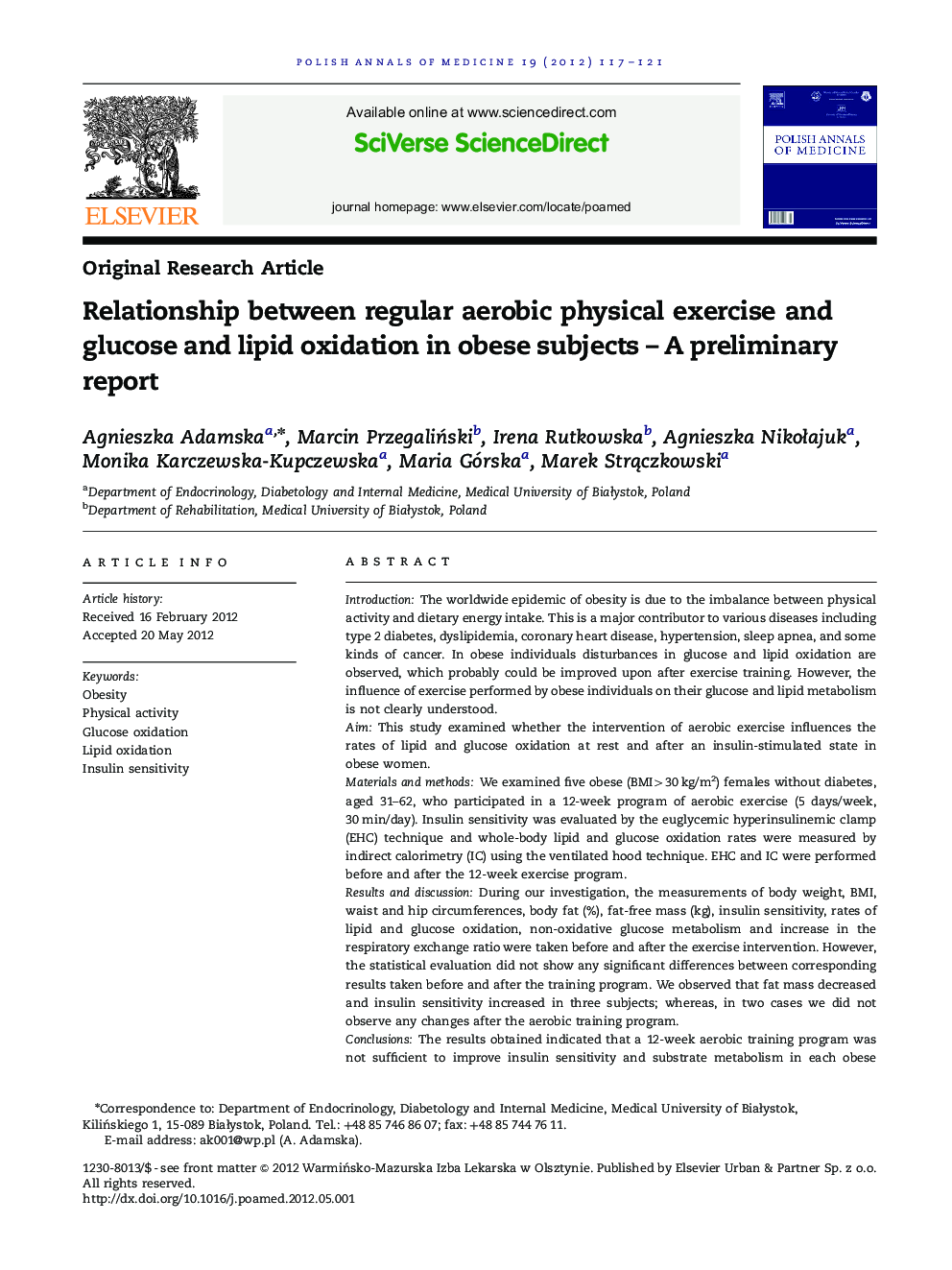| Article ID | Journal | Published Year | Pages | File Type |
|---|---|---|---|---|
| 2675364 | Polish Annals of Medicine | 2012 | 5 Pages |
IntroductionThe worldwide epidemic of obesity is due to the imbalance between physical activity and dietary energy intake. This is a major contributor to various diseases including type 2 diabetes, dyslipidemia, coronary heart disease, hypertension, sleep apnea, and some kinds of cancer. In obese individuals disturbances in glucose and lipid oxidation are observed, which probably could be improved upon after exercise training. However, the influence of exercise performed by obese individuals on their glucose and lipid metabolism is not clearly understood.AimThis study examined whether the intervention of aerobic exercise influences the rates of lipid and glucose oxidation at rest and after an insulin-stimulated state in obese women.Materials and methodsWe examined five obese (BMI>30 kg/m2) females without diabetes, aged 31–62, who participated in a 12-week program of aerobic exercise (5 days/week, 30 min/day). Insulin sensitivity was evaluated by the euglycemic hyperinsulinemic clamp (EHC) technique and whole-body lipid and glucose oxidation rates were measured by indirect calorimetry (IC) using the ventilated hood technique. EHC and IC were performed before and after the 12-week exercise program.Results and discussionDuring our investigation, the measurements of body weight, BMI, waist and hip circumferences, body fat (%), fat-free mass (kg), insulin sensitivity, rates of lipid and glucose oxidation, non-oxidative glucose metabolism and increase in the respiratory exchange ratio were taken before and after the exercise intervention. However, the statistical evaluation did not show any significant differences between corresponding results taken before and after the training program. We observed that fat mass decreased and insulin sensitivity increased in three subjects; whereas, in two cases we did not observe any changes after the aerobic training program.ConclusionsThe results obtained indicated that a 12-week aerobic training program was not sufficient to improve insulin sensitivity and substrate metabolism in each obese woman. Perhaps some individuals need training of a longer duration to improve their insulin sensitivity and metabolic flexibility.
